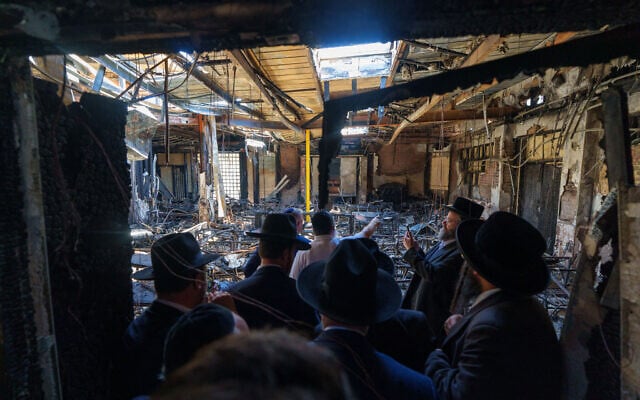


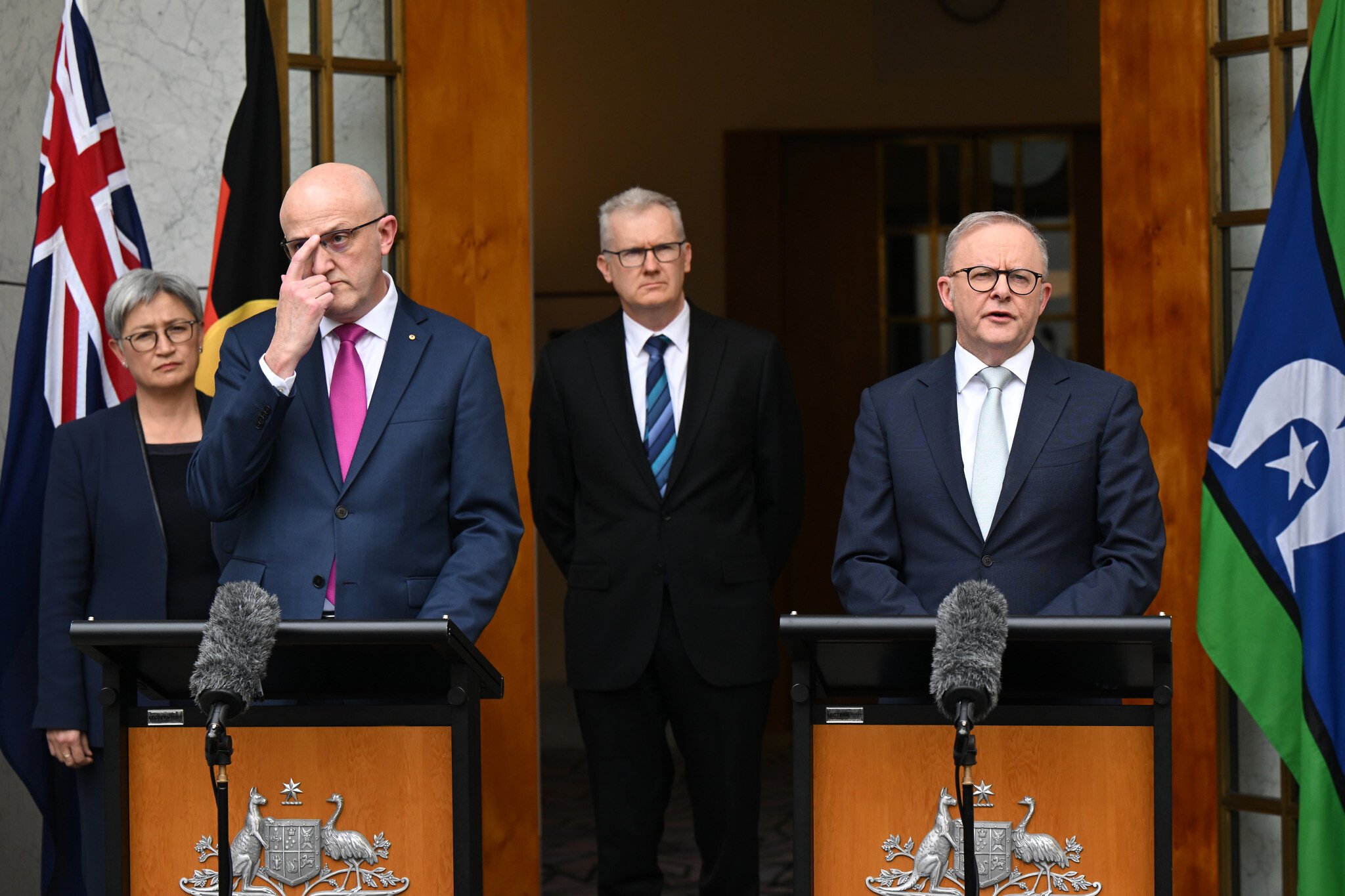
Australian Prime Minister Anthony Albanese accused Iran on Tuesday of being behind a pair of 2024 antisemitic arson attacks in Australia and expelled Tehran’s ambassador, calling the Iranian actions “dangerous acts of aggression” designed to undermine his country’s social cohesion.
Albanese announced that Canberra was also had pulled its diplomats from the Islamic Republic and will list the Islamic Revolutionary Guard Corps as a terror organization. It marks the first time Australia has expelled an ambassador since World War II.
Less than a week ago, Prime Minister Benjamin Netanyahu sent a scathing letter to Albanese accusing him of failing to act against antisemitism in Australia and giving him a deadline of next month’s Rosh Hashanah Jewish new year holiday to act against the phenomenon.
At a press conference on Tuesday in Canberra, Albanese said the Australian Security Intelligence Organization (ASIO) “has now gathered enough credible intelligence to reach a deeply disturbing conclusion that the Iranian government directed” at least two of the recent attacks on Australia’s Jewish community.
The first was an arson attack on Lewis’ Continental Kitchen in Sydney on October 20, 2024. The second was an arson attack targeting the Adass Israel synagogue on December 6, 2024.
Albanese said that ASIO also assessed that Iran likely directed additional attacks, but he did not reveal the intelligence obtained by the agency indicating this.
“These were extraordinary and dangerous acts of aggression orchestrated by a foreign nation on Australian soil,” Albanese said.
“They were attempts to undermine social cohesion and sow discord in our community. It is totally unacceptable, and the Australian government is taking strong and decisive action in response,” he added.
“A short time ago, we informed the Iranian ambassador to Australia that he would be expelled. We have suspended operations at our embassy in Tehran, and all our diplomats are now safe in a third country,” Albanese said. “I can also announce the government will legislate to list Iran’s Islamic Revolutionary Guard Corps, the IRGC, as a terrorist organization.”
In January, Albanese said that Australian intelligence was investigating whether Iran had paid suspects behind antisemitic attacks to carry them out in order to sow domestic discord.
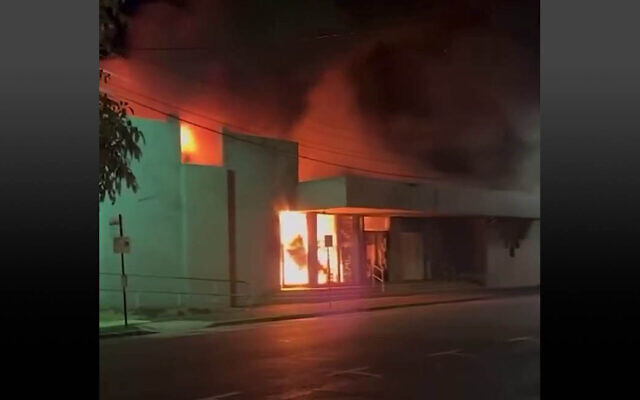
Australia declared Iranian ambassador Ahmad Sadeghi “persona non grata” and ordered him and three other officials to leave the country within seven days.
Australian Foreign Minister Penny Wong said it was the first time in the post-World War II period that Australia had expelled an ambassador.
“We have made this decision because Iran’s actions are completely unacceptable,” she said.
Australia will maintain diplomatic lines with Iran to advance the interests of Australians, Wong said. Australia has had an embassy in Tehran since 1968.
Iran’s embassy in Canberra did not immediately respond to a request for comment.
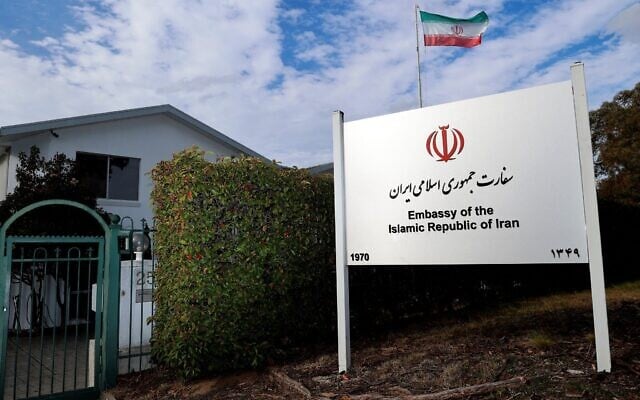
Iran has a history of targeting Jews and Israelis abroad, especially in South America and Europe. Iran has been linked to attacks on Jewish and Israeli institutions in Sweden, Germany, and Cyprus among others.
Though Australians have been advised not to travel to Iran since 2020, Wong said Canberra’s ability to provide consular assistance was now “extremely limited.”
“I do know that many Australians have family connections in Iran, but I urge any Australian who might be considering traveling to Iran, please do not do so,” she said.
“Our message is, if you are an Australian in Iran, leave now if it is safe to do so.”
Australian spy chief Michael Burgess said a “painstaking” intelligence service investigation had uncovered links between the antisemitic attacks and Iran’s Revolutionary Guard.
The probe found that the Guard directed at least two and “likely” more attacks on Jewish interests in Australia, said Burgess, director-general of the AISO.
The Revolutionary Guard, the ideological arm of Iran’s military, used a complex web of proxies to hide its involvement in the attacks, he said.
Iran’s embassy in Australia and its diplomats were not involved, however, the spy chief said.
The Australian intelligence service was still investigating possible Iranian involvement in a number of other attacks, Burgess said.
“Iran’s actions are utterly unacceptable. They put lives at risk. They terrified the community, and they tore at our social fabric,” he said. “Iran and its proxies, literally and figuratively, lit the matches and fanned the flames.”
The Jewish community may find some solace in the investigation breakthrough, said Daniel Aghion, president of the Executive Council of Australian Jewry.
“Yet there will be great anxiety that we have been targeted in such a callous and calculated way, by a ruthless and violent foreign force, because of who we are,” he said.
Last year’s arson attack on the Adass Israel Synagogue in Melbourne was one of the most devastating in a string of antisemitic incidents. The fire gutted much of the building, shocked Australians and was tagged by police as a “likely terrorist incident.”
Israel’s embassy in Australia welcomed the government’s decision to designate the Islamic Revolutionary Guard Corps as a terrorist organization.
“This is a step we have long advocated for,” it said in a statement posted on social media. “Iran’s regime is not only a threat to Jews or Israel, it endangers the entire free world, including Australia. A strong and important move.”
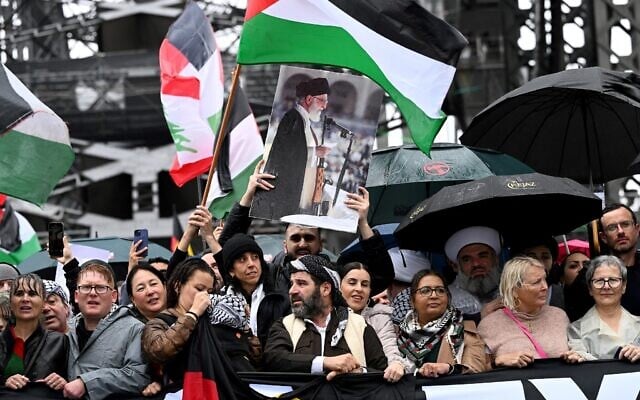
The announcements came as relations between Israel and Australia were at an all-time low.
Netanyahu has taken particular issue with Albanese’s decision to join other Western countries in recognizing a Palestinian state next month. The Israeli premier subsequently branded Albanese a “weak politician who betrayed Israel.”
Albanese told reporters last week that he doesn’t “take these things personally,” as Netanyahu “has had similar things to say about other leaders” in the past.
Netanyahu’s extraordinary public rebuke on social media came after an August 11 announcement by Albanese that his government’s recognition of a Palestinian state will be formalized at the United Nations General Assembly in September. The announcement was followed by tit-for-tat cancellations of visas for Australian and Israeli officials.

